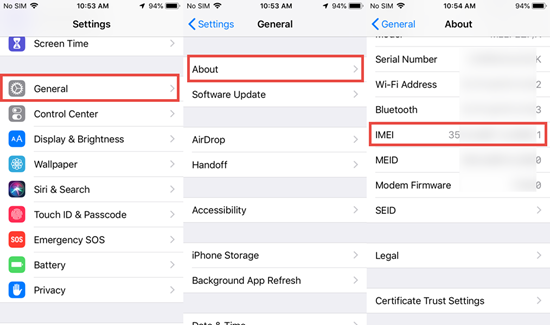

When someone has their mobile equipment stolen or lost, they can ask their service provider to block the phone from their network, and the operator does so if required by law. Since that date, IMEIs have been allocated by BABT (or one of several other regional administrators acting on behalf of the GSM Association) to legitimate GSM terminal manufacturers without the need to provide evidence of approval. The linkage between regulatory approval and IMEI allocation was removed in April 2000, with the introduction of the European R&TTE Directive.

The existence of a formally allocated IMEI number range for a GSM terminal does not mean that the terminal is approved or complies with regulatory requirements. Instead, mobile operators are encouraged to take measures such as immediate suspension of service and replacement of SIM cards in case of loss or theft.

IMEI blocking is not the only way to fight phone theft. A bill was proposed to Congress by Senator Chuck Schumer in §3186 of the 112th Congress in 2012 but has not been approved. In the United States, changing the IMEI of a phone is not illegal. For example, in the United Kingdom, under the Mobile Telephones (Re-programming) Act, changing the IMEI of a phone, or possessing equipment that can change it, is considered an offence under some circumstances. Many countries have acknowledged the use of the IMEI in reducing the effect of mobile phone thefts.


 0 kommentar(er)
0 kommentar(er)
